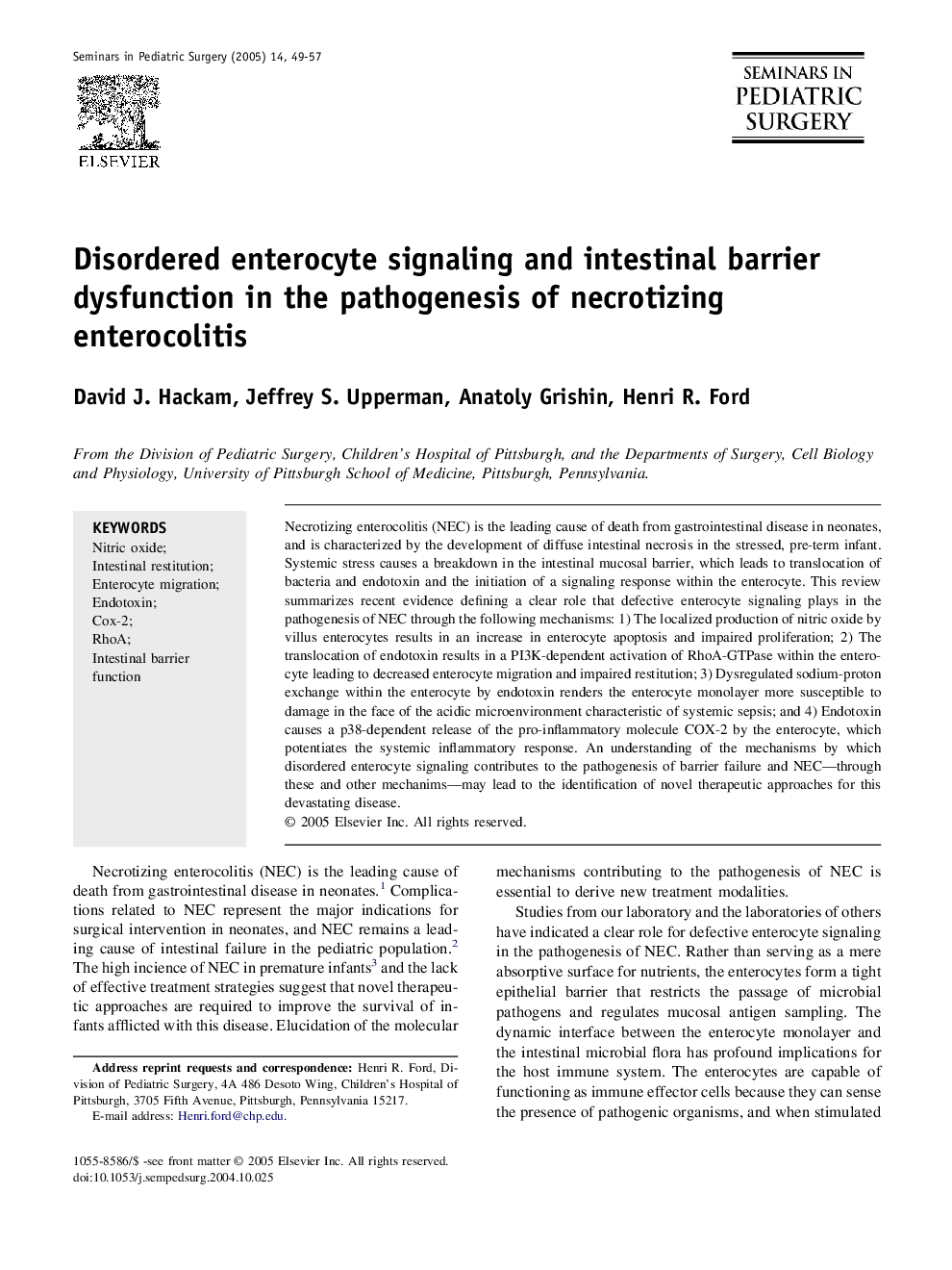| Article ID | Journal | Published Year | Pages | File Type |
|---|---|---|---|---|
| 9377222 | Seminars in Pediatric Surgery | 2005 | 9 Pages |
Abstract
Necrotizing enterocolitis (NEC) is the leading cause of death from gastrointestinal disease in neonates, and is characterized by the development of diffuse intestinal necrosis in the stressed, pre-term infant. Systemic stress causes a breakdown in the intestinal mucosal barrier, which leads to translocation of bacteria and endotoxin and the initiation of a signaling response within the enterocyte. This review summarizes recent evidence defining a clear role that defective enterocyte signaling plays in the pathogenesis of NEC through the following mechanisms: 1) The localized production of nitric oxide by villus enterocytes results in an increase in enterocyte apoptosis and impaired proliferation; 2) The translocation of endotoxin results in a PI3K-dependent activation of RhoA-GTPase within the enterocyte leading to decreased enterocyte migration and impaired restitution; 3) Dysregulated sodium-proton exchange within the enterocyte by endotoxin renders the enterocyte monolayer more susceptible to damage in the face of the acidic microenvironment characteristic of systemic sepsis; and 4) Endotoxin causes a p38-dependent release of the pro-inflammatory molecule COX-2 by the enterocyte, which potentiates the systemic inflammatory response. An understanding of the mechanisms by which disordered enterocyte signaling contributes to the pathogenesis of barrier failure and NEC-through these and other mechanims-may lead to the identification of novel therapeutic approaches for this devastating disease.
Related Topics
Health Sciences
Medicine and Dentistry
Perinatology, Pediatrics and Child Health
Authors
David J. Hackam, Jeffrey S. Upperman, Anatoly Grishin, Henri R. Ford,
